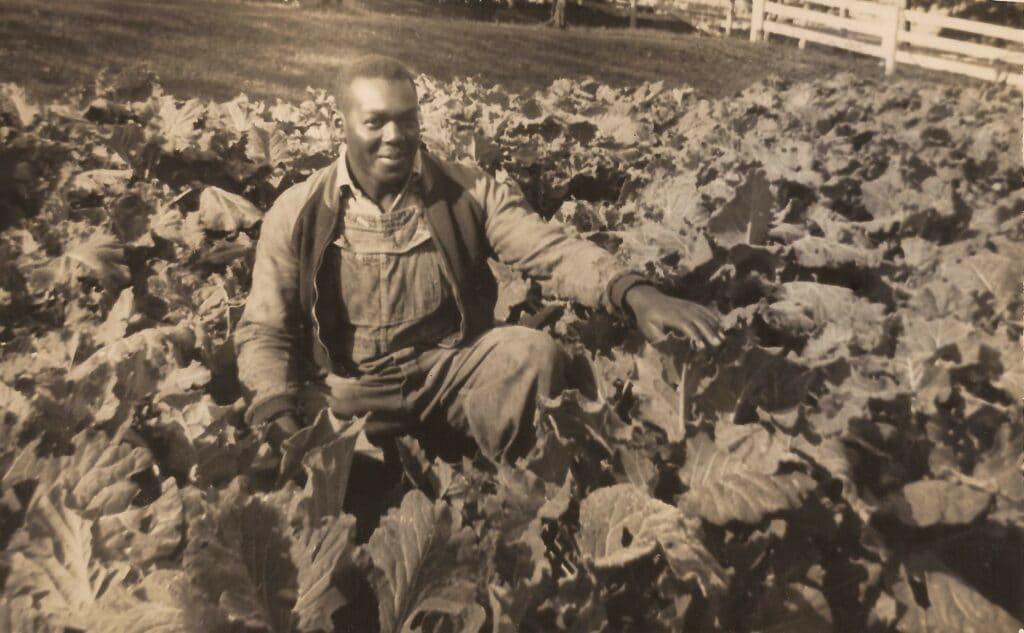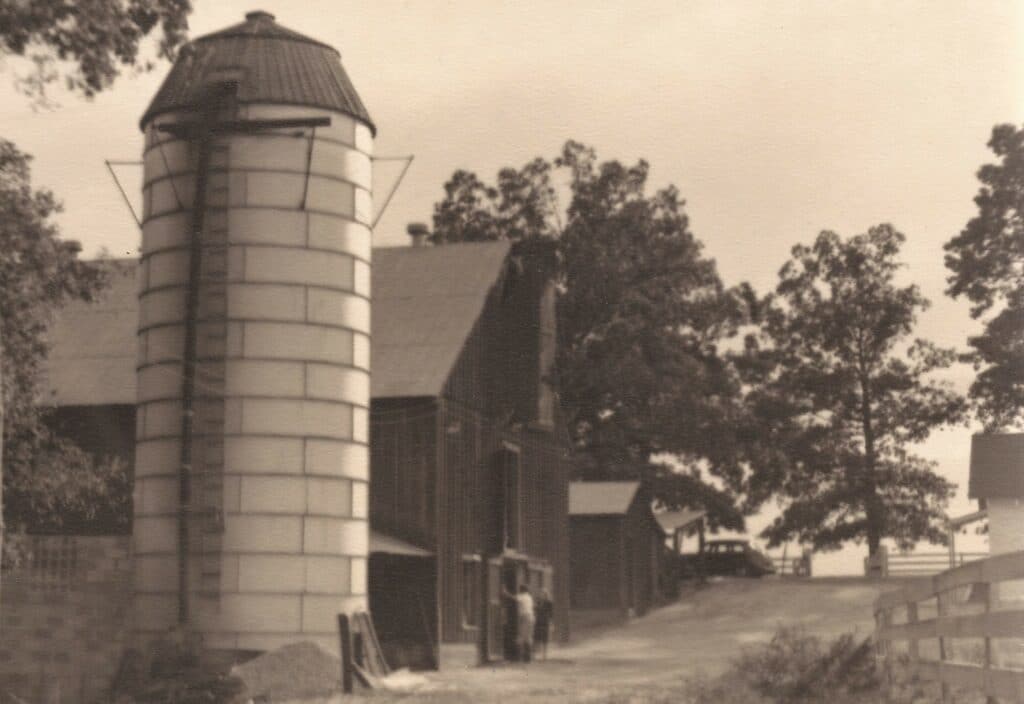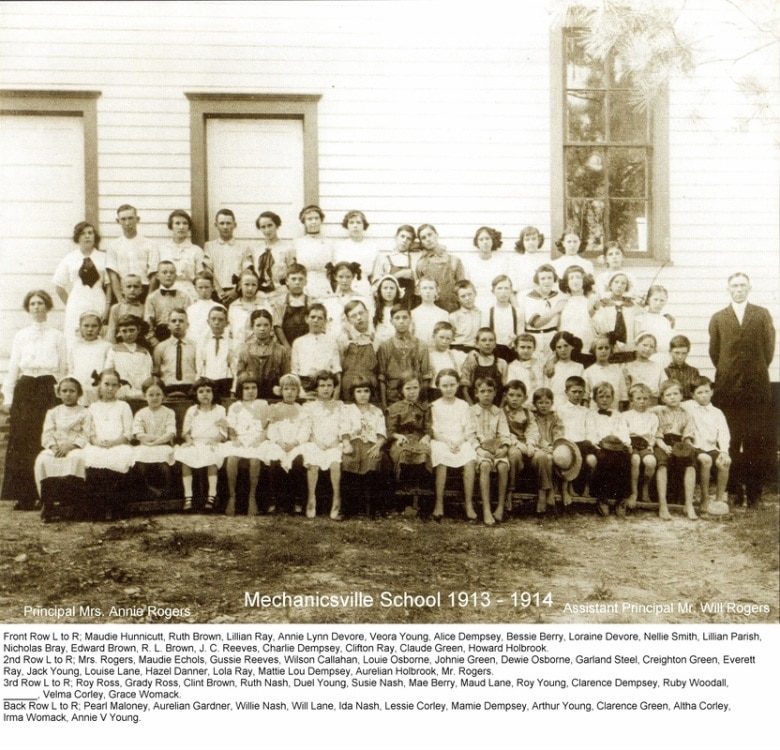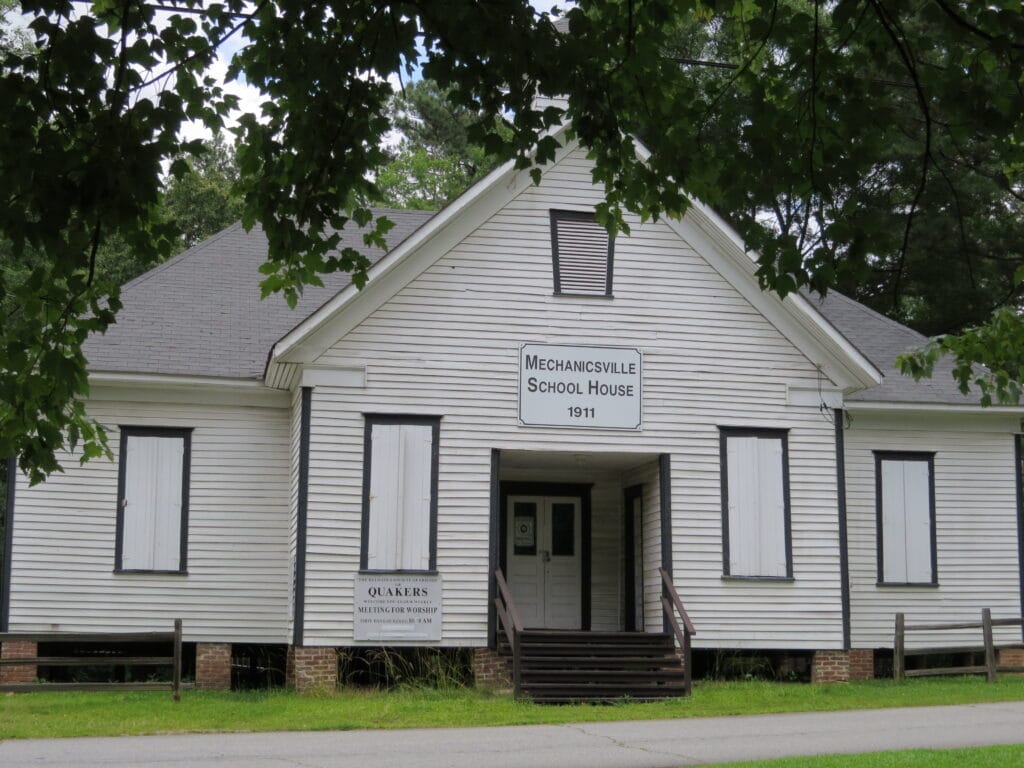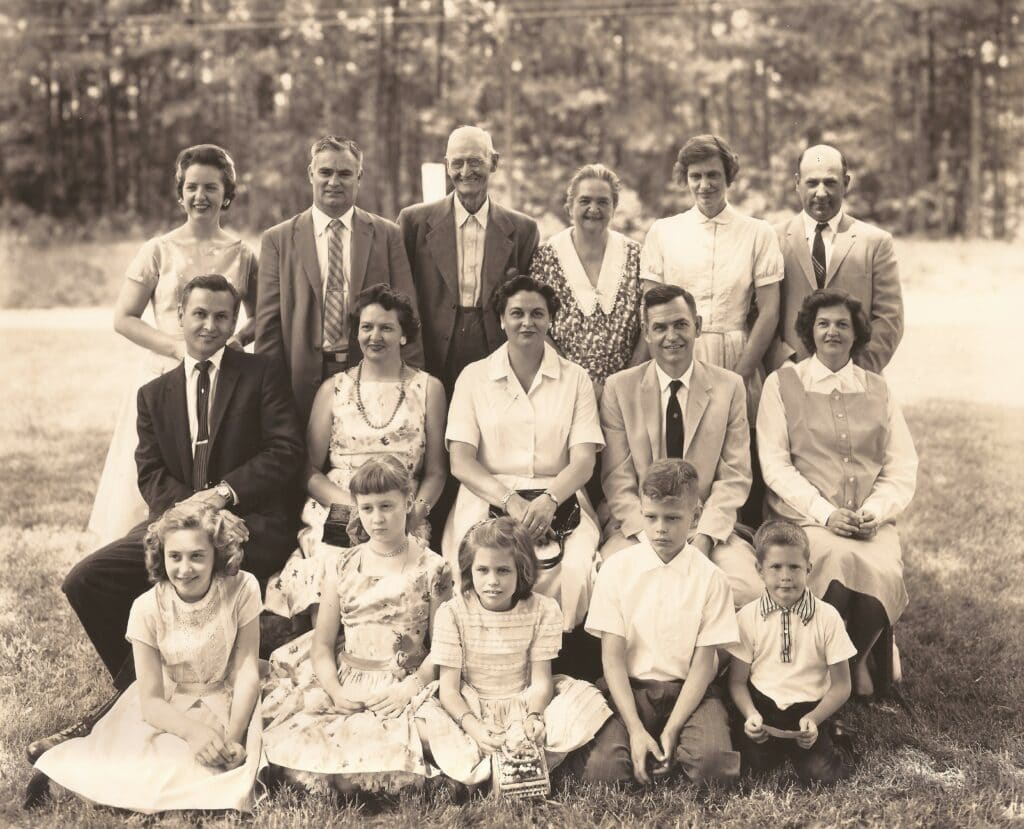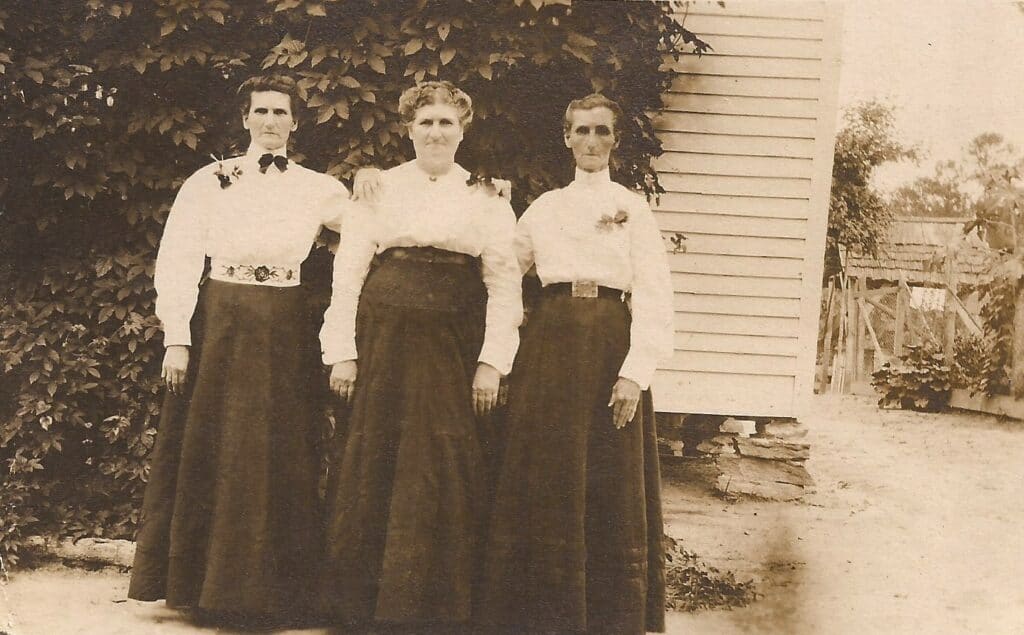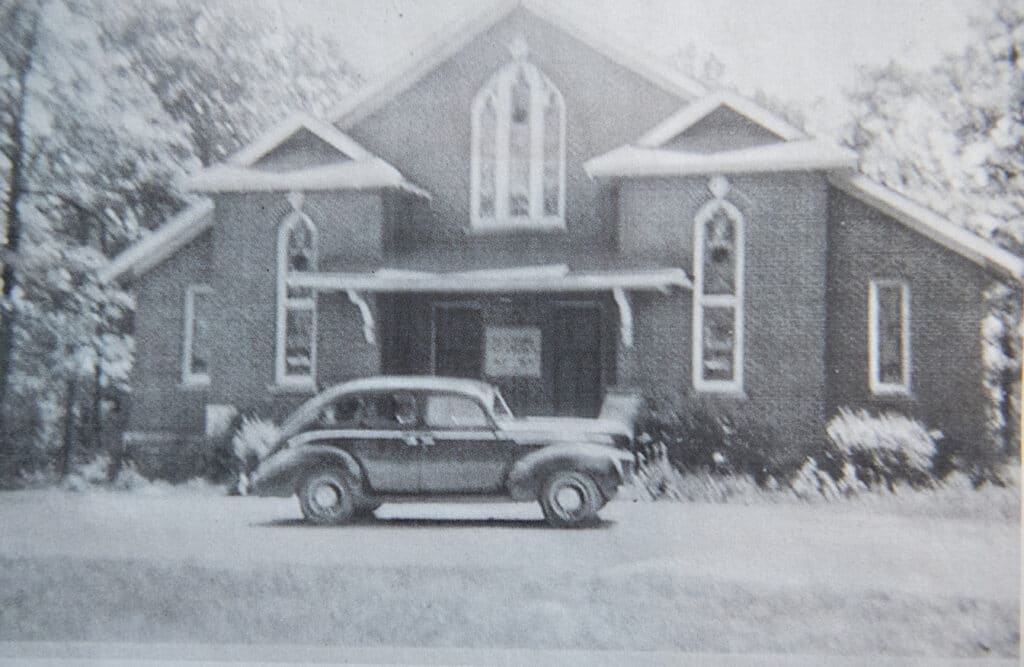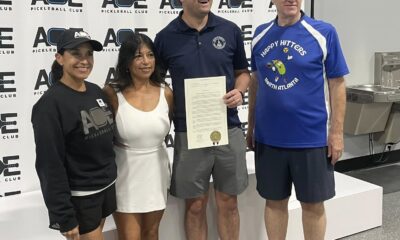Arts & Literature
The History of the Peachtree Corners Area and the City that Grew from it
Published
4 years agoon
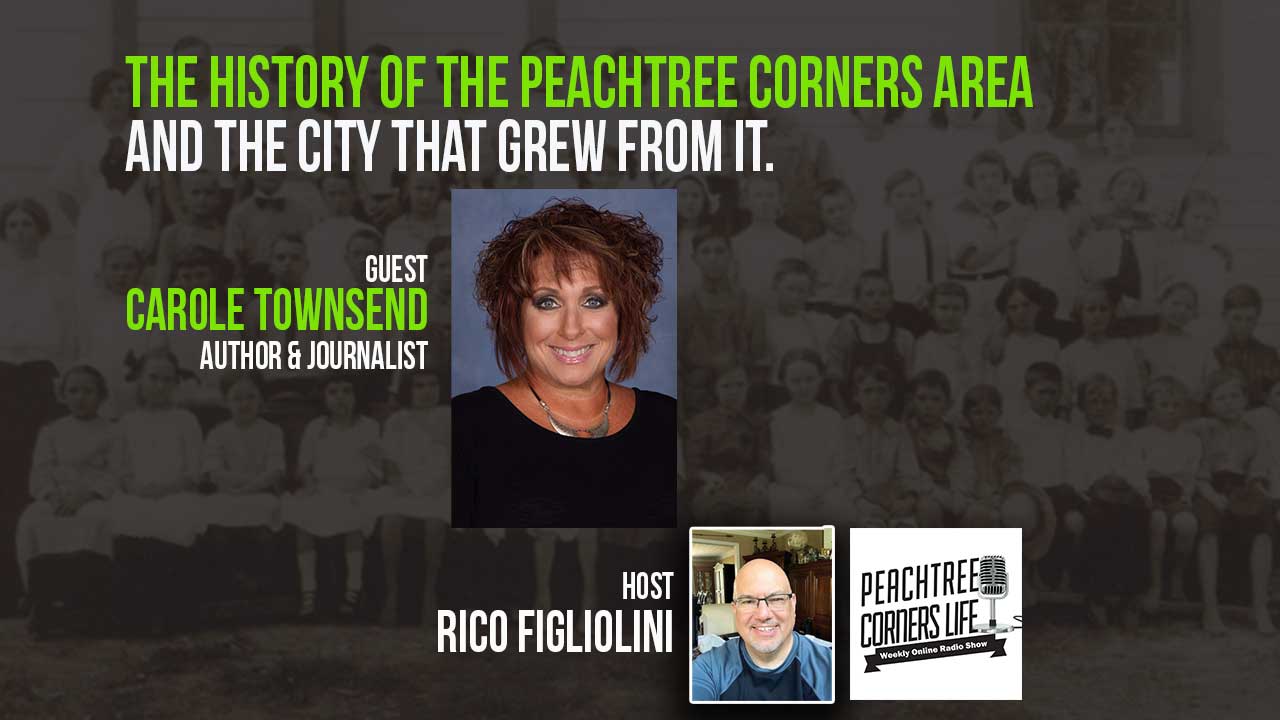
The Nesbits, the Medlocks, and the Neelys were part of the rich history of the Peachtree Corners area, along with other well-known families, native American Indians and European settlers that came here. Author Carole Townsend talks about her new book – The History of an Innovative and Remarkable City.
Rico Figliolini hosts a talk with Townsend about her two-year journey in researching and writing the book that lays out this area’s history from 1770 to 2020. Listen in to hear Carole’s experience writing the book and get a sneak peek of all of the incredible history Carole and her team have dug up.
Resources:
City Website: https://www.peachtreecornersga.gov/home
Carole’s Website: http://caroletownsend.com
“In the overall scheme of history, we’re very new. So to see a family with such a love and reverence and respect for their ancestors. For their history, for a true work ethic, a dedication to family, and a deep love of education. Which to me defines the way the American dream came about for so many here.”
Carole Townsend
Timestamp, where to find it in the talk:
[00:00:30] – Intro
[00:01:29] – About Carole and the Book
[00:04:26] – Picking the Right Stories
[00:08:04] – Original Settlers
[00:11:35] – Important Families
[00:15:21] – Book Release
[00:16:15] – Honeycut Inn
[00:20:59] – Neeley Farms
[00:26:12] – About Pinckneyville
[00:28:11] – Paul Duke and Rise of Technology
[00:32:26] – Carole’s Experience with the Book
[00:38:09] – Closing
Rico: [00:00:30] Hi everyone. This is Rico Figliolini host of Peachtree Corners Life. I appreciate
you guys joining me. We have a special guest tonight and we’ll get to her shortly and the subject
matter that we’re going to be talking about. But before that, I just want to introduce our sponsor,
not only an advertiser in Peachtree Corners Magazine, but a supporter of the family of podcasts
that we do. And that’s Hargray Fiber. They’re a company that is big in the Southeast. They’re a
cable company that provides fast internet connection and business solutions. Not only for small
businesses, but for enterprise size businesses. So check them out. They’re not the cable guy.
They are really in their community that they are in. They’re involved with the communities that
they work in. So HargrayFiber.com. Visit them and thank them. So let’s get to our guest. Our
guest here tonight is, let’s bring her on, Carole. Let’s get you up here with me. Hi, how are you?
Carole: [00:01:28] Good. How are you?
Rico: [00:01:29] Good. So Carol is an author, journalist. I’m plugging as I engineer now so bear
with me everyone. But Carole’s an author and journalist, she’s a native of Atlanta, lived 30 years
here in Gwinnett County. And she’s had, she has about six books under her belt and an award
winning book called “Blood in the Soil”, which is about the 78 shooting of Larry Flint and his
attorney in Lawrenceville, Georgia. Check out that book too. But the book that we’re going to be
talking about tonight actually is a different book. Maybe there’s some history there and there’s
some, some stuff going on there as well. But the book itself that we’re going to be talking about
is the history of an innovative and remarkable city. The city of Peachtree Corners. Two years in
the making, reaching back to 1777 and up to 2020 and dealing with a lot of history, a lot of
families. Some places that, some families that people know already. Certainly if not, know of the
families they know of the street names of those families. So tell us Carole a little bit, let’s get
right into it. Let’s, you know, tell us a little bit about, you know, what did it take and how did you
actually come to this part of writing this book two years ago?
Carole: [00:02:40] Oh my goodness. I was honored to have a Judy Putnam, the city’s
communications director come to me. And she was aware of the fact that I was an author and a
longtime journalist in the area. And she had come to me with a passion of hers, which was
preserving the history of the city of Peachtree Corners. And as anybody who is familiar with
Gwinnett County, certainly who grew up in or around Gwinnett County knows, development here
skyrocketed. It just exploded. Really, I want to say in the late seventies, eighties, and has
continued as we all see. And that’s been a wonderful thing for this area. For the business
community and for residents. The downside to that, as we all know, those of us who love history
know. So much is lost to progress. And progress is certainly not a bad thing, but I think, and
Judy is certainly of the opinion that we must know where we came from in order for where we’re
going to matter to mean as much as it can. And so she was passionate about preserving the
rich history of the Peachtree Corners city and the surrounding, the area that surrounded it
before Peachtree Corners was actually formed as a city. So she came to me with this project
and I love research. All of my books involve a great deal of research. So I was thrilled and I of
course jumped at the opportunity. And here we are a few years later. It’s been an amazing
journey and process.Rico: [00:04:26] I’m sure. So many people are involved in a book like this right? I mean you
have dozens of people you have to interview not only the interview process, but then the writing
process, what goes into it? You know what, I mean I’m sure all the research you did could
probably fill several volumes of books. But you had to really fine tune where you were going with
this right? You had to pick the right families that you felt had a good enough story to be able to
carry a book like this a bit right?
Carole: [00:04:52] Right. Exactly. The city itself is, we just had this conversation, nine, ten years
old. And as we had laughed and said a book, a history book with nine or ten years of history is
going to be more of a brochure than it is a book. So we said really the history of any area
reaches far back into its roots. So we said, let’s just go back and take a look as far back as we
can find historical factual data about Western Gwinnett County. Which of course is where
Peachtree Corners sits. So we did. We are back in Creek and Cherokee and habitation and
early settlers. And as is so true when the research really hits that sweet spot. The history is
fascinating. The stories are fascinating.
Rico: [00:05:44] Not only that. I think it also feeds into the stories that would come later, right?
Kids during the fifties and sixties, seventies growing up in this area that would find arrowheads
in certain places and stuff. You know, I mean, yeah. And walk, and even like, for example, the
the old broken bridge that’s no longer there that crossed that Chattahoochee, you know, when
that was built. And then even later when it became Brust and Toking bridge, the kids were still
jumping off that bridge into the river.
Carole: [00:06:12] I mean, this will really I guess date myself, but as a teenager, you know my
friends and I would go and we always went up to Jones bridge. And you did. You know, you
shimmied up and jumped off. Our parents would not have been happy to know that, but that’s
just those kinds of a rite of passage if you grew up in this area.
Rico: [00:06:31] And we were talking a little bit before we started recording about and I know
from friends that, Gwinnett County a long time ago was a place that when you were a kid, I think
it was during maybe the fifties and sixties. And you thought you had to cross Gwinnett County
and you were like 18 years old, you had your driver’s license. Your parents would say, go
around the County don’t you dare go through that gap.
Carole: [00:06:52] Right? They did. That was a rule in our household and there were seven of
us children. So they weren’t kidding. I was the next to the youngest. So they had it down to a
science by then. But yes, we as kids, you know, growing up around here, you always wanted to
go to Lake Gwinear, for one reason or another. And if you live in DeKalb County, you must go
through Gwinnett County to get to Hall County. And we were required to drive around Gwinnett
because of, you know, it yeah. A lot of the history of the County is not a secret. There were
some wild and wooly things that took place here because Gwinnett was so, it was sparsely
populated. It was country. I think that’s being generous. It was sparsely populated. People
called it the wild, wild West. Let’s put it that way. I don’t know why they called it West because
it’s, there’s nothing West about it, but it’s just kind of the way things were done in GwinnettCounty for a long time. Just bizarre, unusual things happened here. I mean the County is
peppered with really interesting, fascinating events that took place.
Rico: [00:08:04] And isn’t it interesting how we’ve come up to a point where we are a smart city
now on the edge of doing things that other cities are not doing. So it’s grown. So let’s dig deep a
little bit into the history of this area before Peachtree Corners. Obviously Native Americans
inhabited this area as well as other European settlers. But what drew them here? I know the
Chattahoochee river was probably a big draw, but tell us a little bit about what you think and
what you found that drew settlers here, kept natives here.
Carole: [00:08:35] Certainly the river, my goodness. For native Americans this was, the
Chattahoochee river was the lifeblood of the area. So from North Georgia as the river flows
down really to the Southern most part of the state. And then West a little bit that’s, the banks of
the river are where the early, early Native Americans settled. And as the Europeans started
making their way into the new world and then pushing their way South, they brought with them
diseases that wiped out a great number of the Native Americans simply because they just had
not ever been exposed to them. So then we had tiny, tiny gatherings and tribes and groups of
people who migrated along the banks of the Chattahoochee came together South of Gwinnett
County. But I think it was, if my memory serves me correctly, 16 different groups of native
Americans came together. And they formed the Creek nation eventually. And it was largely
Creek that then settled here in the area that we now know is Gwinnett County. There were
Cherokee, but really the Chattahoochee served as a dividing line for the two nations. And so
sometimes there were skirmishes over, a little territoriality and who’s encroaching on whose
territory, but typically the Chattahoochee served as a dividing line between the two nations.
Rico: [00:10:12] And then American, I say American, they became American later, I guess.
European settlers came and they inhabited and became residents of this area. How, you know,
there were families, obviously the, you know, when we look at Holcomb bridge road, we look at
Nesbit ferry, we’d look at Medlock bridge road. These are just not names just pulled out of a hat
or even of recent history. They go back a long ways. What of what families, if you will, were the
earliest settlers to this area?
Carole: [00:10:45] I can tell you the absolute earliest family were the Medlocks. And I can say
that with certainty because Isha Medlock, who was the first recorded Medlock in the area was a
squatter on land that would, the federal government had set aside strictly for Native Americans.
And he just decided that he wanted to settle on some of those lands and he did. So Isha
Medlock was the first, certainly the first Peachtree Corners family. Although the Medlocks, as we
know, goodness, they’re in Atlanta, they’re let’s see up around in Forsyth County and in North of
that even. But in this area, Isha Medlock came 1777. Settled in Western Gwinnett in what is now
Peachtree Corners.
Rico: [00:11:35] Now, and we should let people know that that’s one of the two families that you
highlight in the book.Carole: [00:11:40] Yes, that’s true. So I picked the Medlocks for obvious reasons. They are so,
their name is so well known in the area for very good reasons. And they were the first family to
settle. The other family that I chose, if you want me to, am I jumping ahead to share that? Okay.
The other family is the Nesbit family. And I chose this family, of course there are many important
families that settled the area, but the Nesbit family the Perry Nesbit family struck me as another
group that really needed to be part of the story. Because the patriarch well, and the matriarch of
that family were born into slavery. They were born before, well before the civil war ended in fact,
the grand patriarch, they actually called the gentlemen Perry P. Nesbit. The family refers to him
as grand. He was also born into slavery and was emancipated at age nine. But he became a
prominent landowner in Pinckneyville, Peachtree Corners. And that was highly unusual. I mean,
I think we all know that. You know, from that time period in our history, it was very unusual for
someone who had been born into slavery to become a well-known, a prominent landowner. And
that was done strictly through work ethic and a love of education. And it was a story that had to
be told.
Rico: [00:13:13] And that’s amazing to me. I mean, African American in the South, South of the
Mason Dixon and with the things that went on down here for a long period of time. Now, you
know, obviously there may have been pockets where everything was fine, maybe. But overall
the South was not a friendly place, always to African-Americans and certainly to business
owners. Unless you had a pocket of, you know, a town that was African-American, let’s say. Or
a pocket area like that. So you know, I can appreciate the history that goes there because there
was probably a lot of struggles there as well to a degree, right? So again, can you tell us a little
bit more about what you found out about the Nesbit family?
Carole: [00:13:53] Well, I can tell you that it’s very gratifying for me to see in every single family
member with whom I spoke from that family, the deep pride and the continued love for
education. The knowledge of their own family history and the history of the area. That struck
me, you don’t, you really don’t see that that often anymore. In my experience, you don’t. We are
in the overall scheme of things, new. Georgia is new. Gwinnett County is new, in the overall
scheme of history. We’re very new. So to see a family with such a love and reverence and
respect for their ancestors. For their history, for the way a true work ethic, a dedication to family,
and a deep love of education. Which to me defines the way the American dream came about for
so many here. But that’s, it’s held dear by every single family member, whether they’re young
today, or you know I spoke with people in their nineties. They all share that same thing. So I
have a lot of respect for that. And I really enjoyed and felt privileged to share their stories and
experiences in this book.
Rico: [00:15:21] For those that may be joining this live simulcasts or maybe later, as it’s on
demand, we are speaking to Carole Townsend, author and journalist. And author of the new
book that will be coming out, when about? When is that? When is the book coming out?
Carole: [00:15:36] This spring, that’s, I’m comfortable saying this spring. We are, I hope nobody
kills me. We’re probably looking at April release. Those are our hopes. COVID has affected somany things. So we are in the final phase of production of the book, which is of course the
printing.
Rico: [00:15:56] So, okay. That’s good. We’re past the proofing part. So that’s always good. And
anyone that knows about proofread knows that proofread is an adventure all by itself.
Grammarly does not work.
Carole: [00:16:14] Not for everything.
Rico: [00:16:15] No. Nope, nope, nope. So the History of Innovative and Remarkable Cities, the
name of the book, will now be coming out this spring, we’ll say. But there’s other things within
the book. We talked about the Medlock family and the Nesbits, you know, obviously you learned
also a lot about the railroad, the agriculture, stagecoach, post office, the militias, the Honeycutt
inn. Can you me? Cause that was like one thing that sort of stuck out. Can you tell us a little bit
why that’s?
Carole: [00:16:40] So when Pinckneyville was first really a gathering of families. So we’re talking
late 17 hundreds. An interesting thing that I learned, I guess I knew this, but it was kind of
solidified for me in this research. So when the settlers trickled South and then they came to
Georgia. And there were many draws. Once they found out about the gold, that was in North
Georgia. That was a big draw. And the Chattahoochee was perfect climate for growing certain
crops, corn front and center. They love, the corn loves the humidity, the red clay soil. So here
are these people come in first trickled in, and then, you know, the populations in these little
centers grew. Well Pinckneyville was a gathering of families and individuals. The first to be built,
typically in these little towns was a saloon. The more things change, the more they stay the
same. But you know, revenue. It was a big revenue generator.
Rico: [00:17:47] The saloons were also hotels maybe?
Carole: [00:17:50] Well, there was a saloon that was adjacent to the Honeycutt inn, and in fact,
some accounts say it was inside the inn. Some say it was adjacent. More accounts that I’ve
read, say that it was actually adjacent to the Honeycutt inn. So you had your saloon then
typically the church. And then in Pinckneyville’s case came the Honeycutt inn, built by of course
the Honeycutt families. So it was hand hewn board, nails that were, nails and wooden pegs that
were hand fashioned. Mr. Honeycutt was a blacksmith by trade. And they tell me, so we know
where oh, the nursery is it Benson?
Rico: [00:18:33] Yes.
Carole: [00:18:34] Okay. Bentley? The nursery. I apologize. I can flip through my working copy
here, but you don’t want to wait for me to do that. Bentley’s nursery, I believe. So there’s a
storage place right next to the nursery. Is that ringing a bell? Public storage or something like
that? So they tell me that still, if you go back on the site where the public storage place is, and
you dig around a little bit, you’re going to find some of these hand fashioned nails and woodenbeams that made up a part of the Honeycutt inn. So the inn was a stagecoach stop. So that is
an indication that Pinckneyville was on the map already way before you know, some accounts
by date, by you know, noting the gathering of people here is second oldest. It wasn’t actually a
city, but it’s been around for a long time. So the Honeycutt inn was a stagecoach stop. One of
the interesting things and I’ll have to stop myself. I don’t want to give all the interesting stuff
away. But so it was built when, you know, this was still very raw and unsettled land as far as the
English European settlers knew. So and being right here at the river, the Cherokee and the
Creek would get into these skirmishes every now and then. You know, you’re on my side, you’re
on your side and some would try to take a little bit of land on one side of the Chattahoochee,
and then there would be retaliation. So in the porch in the front porch of the Honeycutt inn was
built a big trap door so that people could hide. You know, people staying in the inn or the guy
driving the stage coach or whoever needed to take refuge could hide under the inn. Open that
trap door and hide under the porch, just in case one of these skirmishes broke out you know.
And you’re in the line of fire. A long way to go about telling that story.
Rico: [00:20:37] Little details like that though right.
Carole: [00:20:39] Yeah. I’m going to find, I’m embarrassed. I’m going to find this family’s name.
Because I don’t want to, but you can go ahead and ask me another question. The nursery, it’s
the Bentleys.
Rico: [00:20:53] I think it’s the Bentleys. Yeah, that is.
Carole: [00:20:55] I am so sorry. It was one of those senior moments. Forgive me.
Rico: [00:20:59] I think you’re correct. It is the Bentleys. But let’s move on a little bit. We could
go to, we could talk about Neeley farm. Because Frank Neeley was an interesting personality
also, right? Cutting edge agricultural practices. And how he dealt with his farm workers. And of
course there’s the big house. And the clubhouse now at Neeley farm. So tell us a little bit about
that.
Carole: [00:21:20] Right. Well, Neeley himself, I mean my goodness, I’m sure books have been
written about him. He’s certainly memorialized down at Georgia tech. He and his wife, both.
Georgia tech graduated engineer. Goodness gracious his list of accomplishments. He was on
the board of Rich’s department store, the federal reserve. His list of accomplishments is a mile
long. And again, if I looked it up, I could be more specific. But the man was just a powerhouse.
He was, I had the pleasure of speaking with his granddaughter and she said he was just, he
was very intense, but he was so bright. It was almost as though he couldn’t contain it. He
constantly had to be involved in something that was bigger than life. And he certainly was. He
bought land out in what is now Peachtree Corners, is what we know as the subdivision Neeley
farm, to build a getaway. A weekend retreat for his family, because his work in the city of Atlanta
was very intense and very demanding. And so he built this farm, it was a dairy farm. He also
raised pigs on the farm, but they weren’t just any cows and any pigs. They were exceptional
Guernseys and Holstein cows. He worked with the university of Georgia on actually trying tocross breed the two. Because one, and I’m probably going to get this backwards. One of the
cows was known for the high fat content of the milk and the other was known for just the overall
nutritional value of the milk, I believe. But anyway, he was trying to crossbreed those two to see
if he could come up with this super product of the milk. And the pigs, even the pigs were not
normal. They were called Tamworths and they could forage on their own. They could go out
into, because there was a lot of the property was wooded. They could just go on their own, out
into the woods and forage and feed themselves basically. But there was an unusual looking
reddish hair on the pigs. And anyway, so he did just over the top. But he worked with UGA
because he had seen so many farms, especially in Georgia with rutted you know, the Georgia
clay and the rain runoff and the ruts that you see in the dirt. And he didn’t want that. So they had
said you need to do two things. You terrace your fields, which he did, and you get cows to
fertilize the earth, which he also did. So it was a working dairy farm. But it was also. I’m sorry?
Rico: [00:24:04] Up until when actually? Was that up until like, the sixties, I guess, as a working
farm?
Carole: [00:24:10] I don’t know that it was as recent as the sixties, I want to say probably fifties,
yeah. And I would have to verify the dates, but probably the fifties. But as was true of so many
of the farms they not only produced what, some say a dairy farm, it wasn’t just milk and it wasn’t
just the pigs. It was, there were gardens that are vegetable gardens and the families, there were
seven families that lived on the farm and worked the farm. Interestingly enough, some of the
Nesbit descendants that are featured in the book worked Neeley’s farm, Frank Neeley’s farm.
And they knew a great deal about what their jobs were. But they would have huge gardens. So
canning, preserving, and eventually freezing became part of their collective knowledge. And, but
that was true of pretty much every farm, you know, that you would find during that time period. It
was, they were self-sufficient.
Rico: [00:25:10] So even Frank Neeley wanted to get away from all the city stress. He decided
that farms stress was okay I guess.
Carole: [00:25:17] He came down here and started some country stress. And in fact, his wife
would fuss at him about that, according to Neeley’s granddaughter Ms. Eve Hoffman. Who so
graciously spent a good deal of time with me. She and her brother Nathan spent a lot of time
with me recollecting their years growing up. Because there Mr. Neeley built their mother, his
daughter, a house, which is known, I think still commonly as the Dean house. That was where
they grew up with their mother. And so their stories were just…
Rico: [00:25:52] Now they’re still living? Are they still living in Neeley farm?
Carole: [00:25:55] Ms. Hoffman is. She does. She doesn’t live in the subdivision. She lives on a
piece of the proper, part of the property that did belong to her grandfather.
Rico: [00:26:07] Right. So lots of history here. We even had a militia post at one point, right?Carole: [00:26:12] Militia post 406. Pinckneyville yes. So all of these things, plus the fact that
there was a post office in Pinckneyville really spoke to the importance of the settlement of
Pinckneyville. Which of course evolved into Peachtree Corners.
Rico: [00:26:29] And interestingly enough. I mean, through Gwinnett County, from the little I
know about the history, a lot of the train stations you know, like across Duluth, Sugarhill maybe,
even at Buford. That the trains would run through those towns and there were train stops, right?
And now, you know, those downtown areas during the, I guess the eighties and nineties, you
know, tried to come back also. Because at one point there were train stops, even in Norcross. I
mean, train runs through it, the train stop itself, the Depot is now a restaurant or it was a
restaurant. But so seeing that Pinckneyville stagecoach stop and all these other things near
where the trains were running through, but they were still a place of traffic, if you will. It’s an
interesting thing that this is where we’re coming out of, right?
Carole: [00:27:20] Right. And in truth, when the railroad came through and it was, it went
through Norcross. People who were business owners in the Pinckneyville area, Western
Gwinnett County, of course all went toward or to Norcross because that was the fastest
transportation. That was the latest and greatest you could get to Atlanta in no time and get back.
So the Western Gwinnett County area was certainly agricultural at first of course. Then
businesses started to open and thrive. And then the railroad came through and then it went
back largely agricultural for a long time. And I will say that was certainly the fifties and sixties. It
was still very rural.
Rico: [00:28:11] And then we come up to, you know. I know because of the magazine, because
of the podcasts I’ve done over the last three years, we’ve talked a lot about Technology Park,
Paul Duke. All that development that came after, technology, a lot of the major companies that
have been here that still continue to grow here. They’re all high-tech companies. But before the
technology and maybe after the farming, what did we see? Was there anything, you know,
between that? Between the farming part and the high tech part of the seventies later, I guess.
Carole: [00:28:44] I want to say once, you know, Western Gwinnett County stayed very rural.
There wasn’t even much infrastructure here in the early sixties. Or I say here, in Peachtree
Corners, in Western Gwinnett County. Even, you know, as recent as the early sixties. Which is
shocking, you know, if you see Gwinnett County today, you can’t imagine a square inch that’s
not fully developed. I think when Paul Duke, this young bright engineer that came out of
Georgia tech saw that when Georgia tech engineers graduated, their bags were already packed
to go elsewhere. They were leaving Georgia, we all knew that for a fact. There was nothing for
them to do here or very little. And he wanted to change that. He and his wife lived in Atlanta. But
he had, he worked for LB Foster for a while in his early career. And part of his job with them was
to acquire properties on which to build their facilities and as a result of those responsibilities, he
ended up in Western Gwinnett County. And he immediately dubbed it God’s country. He thought
it was the most beautiful place he had ever seen. And that’s when he got the idea to build this
cutting edge technology campus, or business campus, with a focus on technology to attract
those engineers. He wanted to build this beautiful campus. He wanted to build, surround it withneighborhoods that would appeal to engineers and jobs of that caliber, I guess. You know, for
lack of a better word. He wanted to build a community that would attract and keep engineers. So
he began amassing the land to do that. And as we all know, I mean, gosh, I’ve lived here
forever. I remember when technology park was developed. And you know when businesses
started moving in we thought, and I remember my parents saying who on earth is going to
locate a business way out there in the sticks. Who’s going to make that drive. And of course,
you know, we see the answer to that. It was hugely successful.
Rico: [00:30:59] It certainly, and it’s evolved, right? And it’s interesting how Georgia tech grads,
if you will, from Georgia tech, UGA, have all helped the development of this whole area. How
technology back then Hayes Modem, companies that people are not familiar with today. Unless
they’re old enough to remember dialing into AOL you know. Or even laser printers. I mean, they
were developed here as well, right? So those are just some of the technology and now we’re
moving into the smart city, right? The cutting edge, innovative city of tomorrow, hopefully one
day. Because things do change, right? We’re an urban area. We’re not that far. Maybe we were
not too long ago. And I think part of, I think when the Olympics came in 96, that even
accelerated part of what was developing here, right? Cause it drove a lot of technology, a lot of
business growth. I remember coming here in 95. If you were a sales person back then you didn’t
need to know how to sell. You needed to get through the door to be able to sell. Anyone could
sell. It was amazing. You know, of course there was the shakeout later, you know, and stuff in
2008 later and things. But you know, we continued to grow, right? So this history is still unfolding
in front of us. Do you have any takeaways? Any favorite parts of the book that you want to share
with us?
Carole: [00:32:26] I will say that talking with members of both of the families that are spotlighted
in the book was, that was an experience. It’s a once in a lifetime thing to hear history being
really narrated for you. I mean, the people with whom I spoke, I spoke with a 101 year old
gentlemen, a member of the Nesbitt family who worked on Frank Neeley’s farm. Sharp as a
tack, wonderful memory. Told me some stories that just, I don’t know, just listening to him tell the
stories puts you there. You know a hundred years ago and you can smell the dirt and you can,
you could see the pride he took in his work. That to me is really where, you know, your
research is, you’re not talking at people anymore. You are there in it. And it’s my sincere hope
that readers feel the same way when they read some of those accounts that we share in the
book. It’s just you know, waiting even five years. And this is, I really am getting around to
answering your question. My takeaway from this book is the fact that Peachtree Corners is
undisputedly the crown jewel of Gwinnett County. I mean, with what’s going on there now, the
vision. And everything it took to take technology park, which was state-of-the-art in the late
sixties and seventies, and really it had become kind of a dinosaur. You know, when Peachtree
Corners became a city, city leaders were presented with that really more as a problem than a
solution for the city. The American dream today is not what it was in the late sixties and
seventies. Millennials, you know, the workforce now, they don’t want the big house and the two
cars in the driveway and the 2.2 kids, and they don’t want that. They want smaller, more efficient
housing. They want walkability, they want and the careers are different. I mean, Paul Duke, I’m
not sure as visionary as he was. I’m not sure even he could have understood where technologywas going to go by this time. So technology park has been re-imagined. And, you know, we’ve
got the Curiosity Lab, which is just, it’s an example for the world, not just for the nation, but for
the world. So you’ve got this city that puts so much stock in progress and technology and being
cutting edge paying homage to its history. Because the people in the city who made the decision
to move forward with this book knew that if we didn’t get all this on paper, so to speak, it would
be gone. And the stories that the people shared with me for this book would be nothing but
myths and urban legends and lost. Just lost with the last breath of some of these family
members. So I have such respect. This was not an easy project. But it’s something that is so
worthwhile and now we’ve got it documented. And you know, maybe in another fifty to a
hundred years, somebody will be brave enough to come along and add to it. And I’m sure that
Peachtree Corners will have amazing things to add to it. So I just, innovative and remarkable
certainly describes the city, but for them to reach back into their past and give it this much effort
I think is truly remarkable.
Rico: [00:35:59] I agree and things are still unfolding. COVID-19 has really continued to change
the way the city has to adapt even further, right? Because of people staying home, because of a
year of pandemic. How does traffic change, dwellings, how people live and stuff. So ever
evolving, history needs to be put down on paper though, or on a recorded device or on digital
device, right? To be able to keep that history archived. So I’m glad that the city did this, that you
were able to do this. I know it’s a two year struggle of getting this and being able to put
everything down in a book. It’s not easy. So I respect your abilities to be able to get it done.
Carole: [00:36:47] Thank you. It was certainly a team effort.
Rico: [00:36:49] I’m sure.
Carole: [00:36:50] And I will say too, we see so many city history books popping up here and
there. This book is truly organic. We didn’t run down to the state archives and, you know, pull all
the pictures we could from Western Gwinnett County and put captions and call it a book. We
went to the families and these are family photos. Some are 10 types that we’ve got in this book.
When I dunno, are we out of time? I have a cute story to share. So there’s a lady named Jane
Garner who was a member of the Medlock family. And she, my goodness, she was 94 when she
and I first started talking for the purposes of writing this book. And she shared with me hundreds
of family photos as the Nesbit’s did. But she had pulled out a few 10 types. And there were two,
I think that we were actually able to use in the book and some were really good photos. But she
and her siblings had some of the 10 types were photos of infant babies. She and her siblings
had drawn glasses and mustaches on the babies. Just like all kids do with some family photos
and you get in trouble for it. But I thought, you know, the more things change again, the more
they stay the same. I just, I thought it was so funny that they had done that.
Rico: [00:38:09] Yeah, kids are kids. No matter what. I’m sure if they had the Sharpies back then
really done a job. So, listen this has been a great conversation though. I can’t wait to see the
book. I’m going to be getting my copy. Hopefully it’s sometime this spring when it comes out. I
know it’s at the printers. So we’ve been together here with Carole Townsend, author, journalistthe person that tackled along with a team of people, but she’s the point person on this, the book,
the History of an Innovative and Remarkable City. The history going from 1777 to 2020. The two
year struggle of putting that history on paper and I’m sure you have even recordings of
interviews I bet. Which would be interesting to hear even. But yeah, so it’s been a good
interview. I appreciate you spending the time with me doing this and thank you. And everyone
else, that’s listening to this, go to the city website. But you’ll know that the book will be out
because we’re going to let you know. Plus Peachtree Corners Magazine with the April-May
edition I believe, we’re going to have an excerpt from the book. So look for that. And we’ll have
more information about when that book’s available and pre-sales. If you want to be able to
purchase a copy of it as well. So, but thank you, Carole. I appreciate you being with us.
Carole: [00:39:36] Thank you, this was fun. Thank you. I’m so excited to be able to talk about it.
Rico: [00:39:42] Yeah. So am I, I mean, this was great. Love it. Thank you, Carole Goodnight
Related
Arts & Literature
Experience Shakespeare in the Park with Contemporary Classics’ Twelfth Night
Published
1 month agoon
April 11, 2025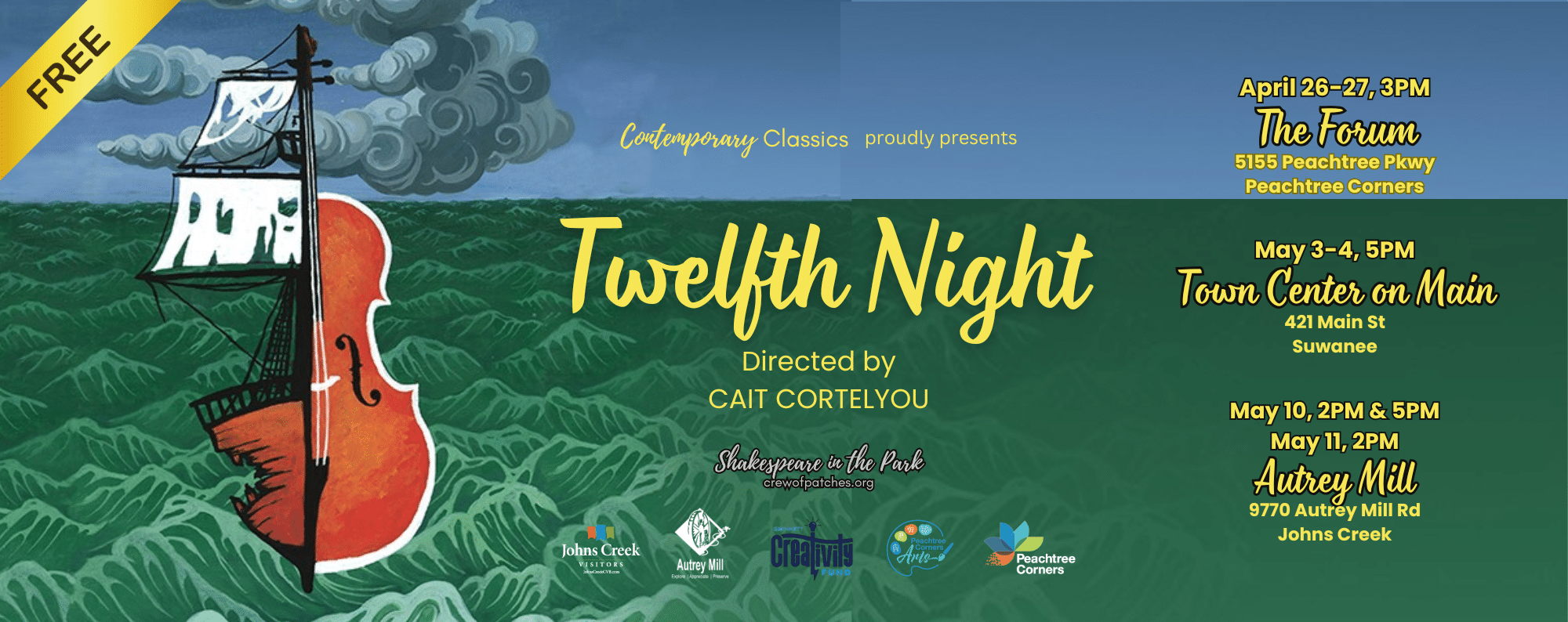
Contemporary Classics Theatre will present Twelfth Night, a free “Shakespeare in the Park” experience at three beautiful outdoor venues in north metro Atlanta
Twelfth Night, William Shakespeare’s romantic comedy of mistaken identity, will play at three beautiful outdoor venues in north metro Atlanta from April 26 to May 11.
Directed by Cait Cortelyou, known for her award-winning feature film “Ask for Jane,” Twelfth Night is a rollicking ensemble comedy explores unrequited love, misperceptions and the instability of gender.
Set in the coastal town of Illyria, young Viola survives a shipwreck and finds herself alone, believing that her twin brother died at sea. Disguising herself as a man, she finds work with the Duke Orsino, quickly falling in love with him. Orsino, however, is in love with the Countess Olivia… and Olivia quickly falls for Viola.
Meanwhile, Olivia’s steward Malvolia has bullied the household for the last time — and the staff is out for vengeance.
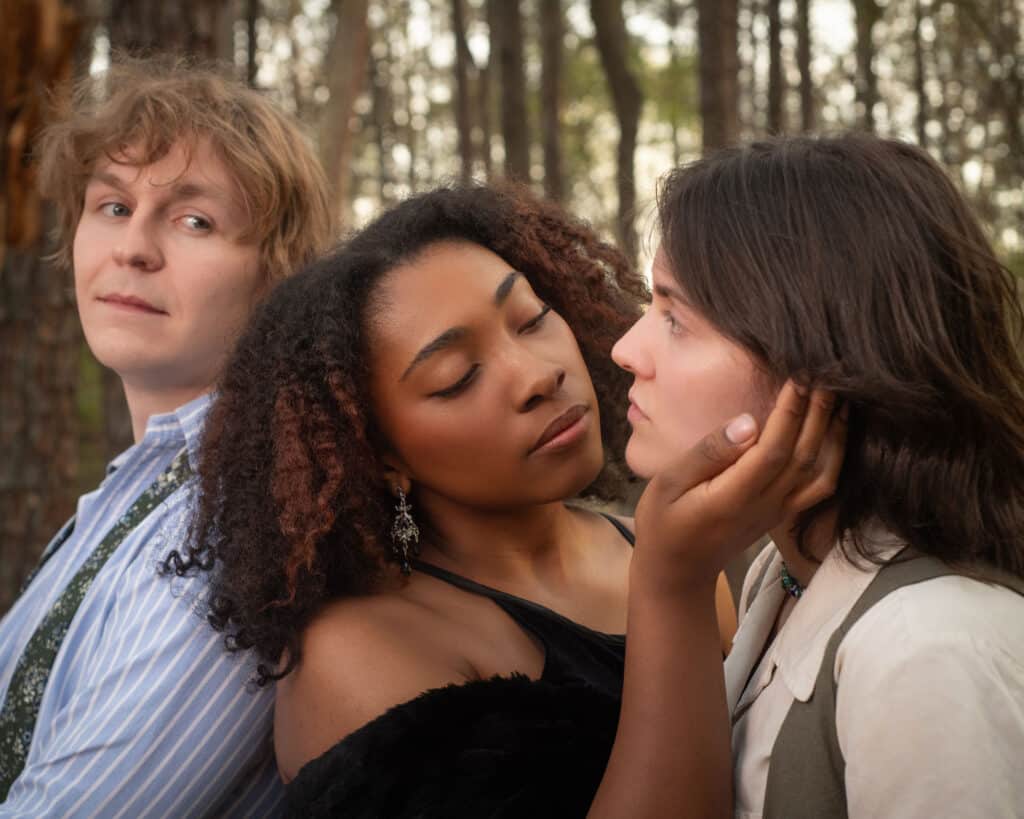
This timeless production of Twelfth Night features Allen Cox, Carl Fisk, Ryan Hutchins, Shem Louis, Susanna Lyne, Steven Medina, Matt Metzger, Danielle Montgomery, Macros Nora, TJ Sanson and Elliott Posadni as one of the first transgender actors to play Viola.
It also features costumes by artist Jordan Hermitt and production design by Sage Kim Gray.
Locations, dates and showtimes
The Plaza at The Forum Peachtree Corners • April 26–27 at 3 p.m.
Audience seating and a special musical performance will start at 2:30 p.m. Please note that seating is limited; arrive early and/or bring lawn chairs or blankets. Food and drink are available for purchase at the venue.
Town Center on Main, Suwanee • May 3– 4 at 5 p.m.
Audience seating and a special musical performance will start at 4:30 p.m. Please note that no seating is provided; bring lawn chairs and blankets. Coolers are welcome (no alcohol). Food trucks will be onsite at the venue.
Autrey Mill Nature Center, Johns Creek • May 10 at 2pm & 5 p.m.; May 11 at 2 p.m.
Audience seating and a special musical performance will start at 1:30 p.m. on both days and at 4:30 p.m. for the evening show on May 10. Limited bench seating only. In case of inclement weather, the show will move from the amphitheatre to the open-air Pole Barn nearby.
Admission to the shows is FREE. Register online for tickets.
About Contemporary Classics
Contemporary Classics exists to challenge and transform classic Western theater traditions by creating an inclusive community of diverse people, ideas and cultures. They believe that classic work is made even greater when performed by a larger variety of artists — especially those who have been marginalized by Wester theatre traditions — including women and people of color.
With no permanent home, the theatre company partners with places such as public parks for performance spaces. This “homeless” state is one of the reasons they call ourselves “a crew of patches”— they travel from “patch” to “patch” with their shows.
The name also comes from a line in A Midsummer Night’s Dream, and reflects the “motley” coat of a Shakespearean clown (or fool), created by sewing patches of old or discarded clothing together in a mishmash of textures and colors, like a patchwork quilt.
Fools, or “Patches,” transcend societal norms by being simultaneously a part of society and outside of it, giving them the ability to examine and comment on it.
For more information, visit crewofpatches.org.
Related
Arts & Literature
From Food Creations to Handmade Jewelry: Wesleyan Kids Prep for Artist Market 2025 [Podcast]
Published
1 month agoon
April 7, 2025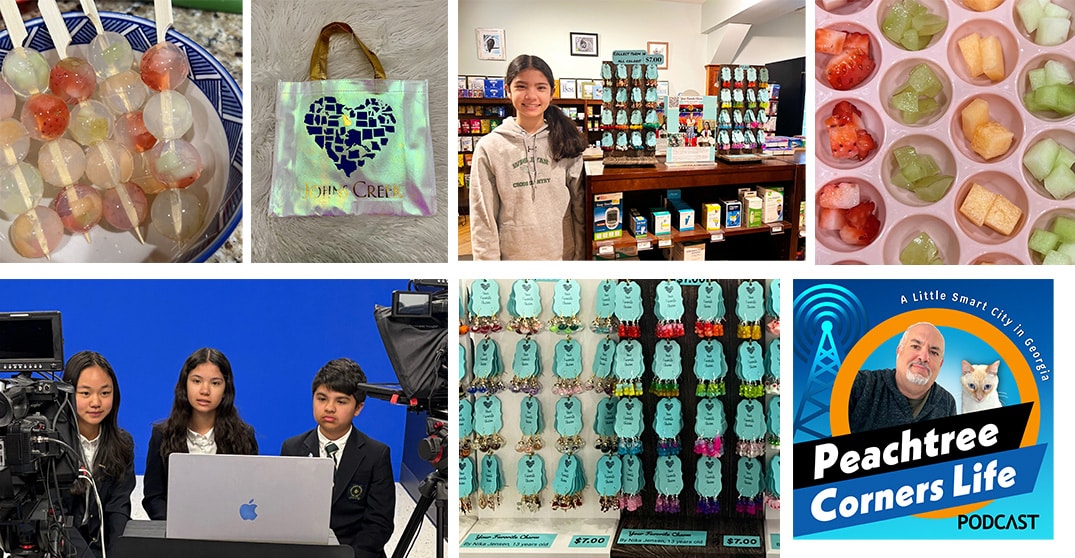
In this episode of Peachtree Corners Life, host Rico Figliolini spotlights three remarkable student artists featured in this year’s Wesleyan Artist Market. Eighth graders Kimberly Wang and Nika Jensen, along with sixth grader Carter Jensen, share their creative journeys—ranging from edible art like fruit jellies and peppermint bark to handmade jewelry and custom-designed bags.
Kimberly talks about her love for food art and balancing sweetness with fruity freshness, while Nika and Carter discuss building a jewelry business that also gives back—donating proceeds to families in the Philippines. This isn’t just an artist market; it’s a showcase of purpose-driven, globally inspired young talent. The event runs April 25–26 at Wesleyan School and is open to the public.
Podcast Takeaways:
- Kimberly Wang creates handmade edible treats, balancing flavor and freshness for the show.
- Nika and Carter Jensen co-run a jewelry and fashion accessory business, inspired by global travel and cultural experiences.
- Nika donates part of her proceeds to support families in the Philippines.
- All three students are deeply involved in extracurriculars—from musicals, marching band, math club, and academic bowl.
- The Wesleyan Artist Market features 24 student artists and over 70 professionals—open to the public April 25–26.









Timestamp:
00:02:19 – Student intros and extracurriculars
00:03:06 – First-time participants and motivations for joining
00:04:13 – Kimberly’s edible art and recipe testing process
00:05:16 – Nika and Carter’s jewelry and bag design business
00:07:06 – The reward of watching people enjoy your creations
00:08:20 – Donating art profits to support families in the Philippines
00:10:39 – Future aspirations in medicine and law, with art as a passion
00:12:06 – Behind-the-scenes logistics of preparing for the market
00:13:25 – Global travel inspiration: 73 countries and counting
00:17:19 – Where the students draw artistic inspiration
00:20:04 – Custom requests: From peppermint bark to Lego earrings
00:21:16 – Anticipation and excitement for this year’s market
00:22:29 – Reflections on Wesleyan and the artist experience
Transcript:
00:00:01 – Rico Figliolini
Hey, everyone. This is Rico Figliolini, host of Peachtree Corners Life. We have a great set of guests today. Because of the upcoming Wesleyan Artist Market, we thought we’d do some interviews with student artists. Three of the 24 that are going to be at Wesleyan Artist Market. So they’re with me here today. So we’re going to get right into that shortly. I just want to say thank you to our corporate sponsors. So I want to say thank you to EV Remodeling, Inc., based here in Peachtree Corners. The owner is Eli. Him and his family live here. They’re great. They do a lot of design work, design your space. Essentially, any home remodeling you need from whether it’s your kitchen, your bathroom, or a whole house remodel, or even an addition to your home, think about it, whatever you need, Eli can handle. So check them out. Go to evremodelinginc.com and find out how they can design your space and your life. Our next sponsor just came on, and they’re Vox Pop Uli. I want to thank them for joining us as well. They deal with all sorts of things you can imagine putting your logo on, similar to a little bit about what these kids do, right? They’re creating artwork. They’re creating a brand for themselves. And so this is what Vox Pop Uli does, right? They’ll take your brand and bring it to life. Essentially, anything that you can think of that would go on apparel, whether it’s sweaters or T-shirts or wherever you want to put your brand engraving, your logo, what object you want to put it on, even vehicle wraps. So if you’ve got a truck, you want to put a whole wrap around it, check them out because they can do that. They’re here in Peachtree Corners and they’re called Vox Pop Uli. So visit their website. I’ll have the links in the show notes as well. So thank you guys. I appreciate your support. So now let’s get right into it. Let me introduce our three artists, great Wesleyan students. Can’t wait to start talking to them. We have Kimberly Wang first on your left, on my left, and Nika and her brother Carter Jensen, who work together creating the artwork they do. So I’m going to ask you guys just to, you know, give me a little background. Tell me who you are, your grade, what you do, extracurricular, stuff like that. This way our audience can get to know a little bit more about you. So let’s start with Kimberly Wang. Hey, Kimberly.
00:02:19 – Kimberly Wang
My name is Kimberly Wang. I’m in eighth grade this year, and outside of Artist Market, I do marching band, and I also do the musical production this year, which is Matilda.
00:02:31 – Rico Figliolini
Excellent. What about Nika? How about you?
00:02:34 – Nika Jensen
I’m also in eighth grade. My name is Nika Jensen, and apart from doing the Artist Market, I do cross country. I’m also in Matilda this year, and I also do math counts, which is a math club.
00:02:47 – Rico Figliolini
Okay, cool. And Carter?
00:02:49 – Carter Jensen
Hello, my name is Carter Jensen. I’m in the sixth grade. And outside of the artist market, I do academic pool and I also do basketball.
00:03:00 – Rico Figliolini
Excellent. Alright, cool. So have you guys ever done the artist market before? Is this the first time?
00:03:06 – Kimberly Wang
This is my second year doing it this year.
00:03:08 – Rico Figliolini
Second?
00:03:10 – Nika Jensen
Yeah, this is our first year because we’re new students this year.
00:03:13 – Rico Figliolini
Alright, cool. What inspired you to get into it, Nika?
00:03:17 – Kimberly Wang
Well, I had my own business before we came to Wesleyan and so I thought that the artist market is a good way to like show my business to other people in our community. So yeah.
00:03:30 – Rico Figliolini
And you brought in your brother Carter to help you with?
00:03:35 – Nika Jensen
Yes, sir. He’s also part of the business.
00:03:39 – Rico Figliolini
Alright cool. Okay so, Kimberly. Food. Food is art, right? I’m sure your mom would probably say, it’s food, just eat it. But you’re playing with your food, essentially. What they used to tell you not to do, right? So when you create your food art, what do you think about? How do you go through this? How do you choose what you do and what do you exactly do?
00:04:13 – Kimberly Wang
So this year, I am making fruit jellies and peppermint bark. And when I think about what creations I want to make for the artist market, I go online and I look through like, what are some popular desserts that a lot of people like? And once I like choose my items, then I go through
the recipe and then I do a lot of trial and errors to make sure that like the products are like healthy and they taste well.
00:04:42 – Rico Figliolini
So they have to be edible, right? Because this is edible art?
00:04:45 – Kimberly Wang
Definitely, yes.
00:04:46 – Rico Figliolini
So are you eating a lot of the edible art before you get to what you need?
00:04:50 – Kimberly Wang
Not really. I don’t usually taste a lot of the food. I let my family taste it.
00:04:56 – Rico Figliolini
Ah, good. I like that. Yes. Get them to participate. Cool. So edible art, that’s one way of doing it. Jewelry, that’s something else, right? Wearable. How do you guys, Nika, Carter, how do you get to the place of what you do?
00:05:16 – Nika Jensen
So I started my business when I was 11 years old and it started like I got my first jewelry making kit and I kind of just expanded from there. So like I usually use Amazon to search and find like the prettiest designs like of earrings and pendants and get opinions from other people like my mom and my family to see like if they think it’s like wearable and if they like it. So I browse on Amazon for a while and I find like the best and high quality products and then I hand make them at home usually like every day after I come home from school so and my brother he does something else and he can tell you about that.
00:06:01 – Carter Jensen
I, my sister, she got a Cricut machine for, like, her 12th birthday, I think. And started making these, like, iron-on bags with the Cricut machine and, like, making them based on, like, Georgia and, like, Wesleyan and designing it based on fashion.
00:06:19 – Rico Figliolini
Alright. Cool. So let’s get back to Kimberly. The food that you do. Do you have particular flavors you like? Do you have particular areas that you stay in?
00:06:33 – Kimberly Wang
So this year I’m trying out like something more sweet with chocolate. But last year I definitely went for more of like the fruity side. And I think I like to keep it like a balance. So that way one is not overpowering the other. My personal favorite will probably be fruit because it’s healthy. And I mean, it just tastes good in general.
00:06:56 – Rico Figliolini
Okay. Alright cool. What’s the most rewarding part that you can think of, of making edible art?
00:07:06 – Kimberly Wang
Well, I mean definitely like you said before you get to eat a lot of food. I mean, I did say before that I don’t eat a lot of the creations I make, but sometimes I still do eat it. And so I think it’s also really rewarding to see like people try out your creations and see like their reactions to what they think of it.
00:07:27 – Rico Figliolini
So when, I know I’ve spoken to other artists when they sell their artwork like paintings or stuff like that they get a chance to see it sometimes when the fan that bought it if you will, would send them a picture of where they hung it right? Yours disappears right?
00:07:45 – Kimberly Wang
Yeah, exactly.
00:07:47 – Rico Figliolini
Yeah I guess, there’s no way to, short of doing a selfie with it or taking pictures of it, there’s no there’s no permanency to it so how does that feel?
00:07:57 – Kimberly Wang
I mean well as long as the people enjoy it that’s good. And I mean I think mainly it’s about like the memory that you have of having the food and if you like it then it stays as a good memory for you and if you don’t then I mean you can always try out different things.
00:08:20 – Rico Figliolini
Okay. Nika, Carter, as far as the jewelry goes the, you’ve used it to raise money to support children in the philippines? yes
00:08:29 – Nika Jensen
Yes sir.
00:08:31 – Rico Figliolini
Is that, is that how you started this when you were 11? Is that the reason?
00:08:35 – Kimberly Wang
No, so I was like 11 during the pandemic. So I was always looking for a way to express my creativity. And so that’s how I started my own business. And so I was selling at my uncle’s pharmacy and I was saving up the money to use for like college or for like other events later on in my life. But this last year and a half before this school year, we were living in the Philippines. And so I was really touched by all of the families there. And we even did something similar where we gave out food and canned goods over Christmas to poor families there. So that just
really touched me. And so ever since we got back to America, I’ve been donating part of my profits to other families in the Philippines.
00:09:24 – Rico Figliolini
Carter, did you end up going on that trip as well?
00:09:28 – Carter Jensen
Yeah, I was with her. We stayed there for about a year and a half. We also did schooling there.
00:09:36 – Rico Figliolini
It’s interesting brothers and sisters, I have three kids and you know growing up brothers and sisters always there could be dynamics there. So how do you get along? Do you ever say to your sister, I don’t know about that. You know that might not look as good, that might not sell. Do you give good feedback? I mean how do you praise her or how do you work together?
00:09:58 – Carter Jensen
She’s more of the leader of the business so like I usually just like try to like agree with her and like yeah.
00:10:12 – Rico Figliolini
Alright that’s cool well you need a leader of the pack sometimes right? So Nika the artwork that you do, you know this is part of what you do you’ve mentioned other things you do right? I know you’re young, you all are, you know you’re not old enough to really think well maybe you are to really think what you want to do with your life right? Is art something that you want to keep as part of what you’re doing in your life?
00:10:39 – Nika Jensen
It’s definitely something that’s of great value to me, but I kind of want to pursue the medical field, but art is also really important to me.
00:10:49 – Rico Figliolini
Okay. Sounds good. Same question to Kimberly. What about you? How do you feel about the work you do?
00:10:57 – Kimberly Wang
I definitely enjoy making food, but like Nika said, I was also really interested in the medical field. And so like I’m not really sure if I’m going to continue pursuing this. But I mean it’s definitely brought me a lot of joy while doing food art.
00:11:15 – Rico Figliolini
Okay. Medical field both of you, that’s cool. What about Carter? How about you? 00:11:19 – Carter Jensen
I kind of like, I like doing art it’s one way to like express your creativity as my sister said. But I also kind of, I’m not really sure what I want to do when I grow up, maybe be a lawyer.
00:11:33 – Rico Figliolini
Okay. Well, artwork gives you a chance, right, to play a little bit, to be able to also see how people, like Kimberly, like you said about how when people see your food or taste your food and your food art, if you will, and it gives you a chance to see how people appreciate what you’re doing, I think, right? The challenges of making food art and keeping it fresh and making sure you’re going to deliver it on the right way I guess at the Wesleyan artist market, how do you how do you handle that part of it?
00:12:06 – Kimberly Wang
So for me the night before each day of the selling I would stay up really late and I make all my products so they’re all fresh and they’re all new. Because I want the best for the people that are eating the food because I don’t want anything to go bad overnight and so I make sure that it’s always new products and I make it, yeah.
00:12:32 – Rico Figliolini
We don’t have the same issue with the jewelry that you do, Nika. So that could last forever, right? But putting it together, sourcing the supplies, right, of what you do, the logistics of it, I guess. How do you handle that? Like getting all the materials together? Do you order it all on Amazon?
00:12:52 – Nika Jensen
Yeah, I order like 99% of all of my things from Amazon. And then since I already have the materials shipped to me, then all I have to do is just create them from my house. So it’s easier for me than having to go out and buy supplies at stores.
00:13:11 – Rico Figliolini
Sounds good. What inspires you as far as jewelry goes? I know that you said you look online to see other things and what the trend is. So where do you find most of your trends? Is it just on Amazon or is it social media, other places?
00:13:25 – Nika Jensen
I kind of observe other people and like what they wear and also social media. And I get a lot of inspiration also from like nature and from like my travels. We’ve been to a lot of countries in the past five years, 173 countries.
00:13:44 – Rico Figliolini
How many?
00:13:45 – Nika Jensen
I’m sorry, not 173, 73 countries.
00:13:49 – Rico Figliolini
73 countries?
00:13:50 – Nika Jensen
Yes, sir.
00:13:51 – Rico Figliolini
That you’ve been to in how many years? I can’t even wrap my head around that. How did you even do that? Teleport? I mean, how did you do that? Wow. What is your heritage, if you don’t mind me asking?
00:14:12 – Nika Jensen
I’m half Filipino. My brother and I are half Filipino. And then my father is part Danish and then also American.
00:14:21 – Rico Figliolini
Do you speak any languages?
00:14:23 – Nika Jensen
I speak the language of the Philippines called Tagalog and then English. And I’m learning Spanish.
00:14:30 – Rico Figliolini
Really? Okay. Kimberly, how about you?
00:14:33 – Kimberly Wang
So my mom is Taiwanese and my dad is Chinese. So I speak Chinese, English. I’m learning French and I’m learning Korean.
00:14:43 – Rico Figliolini
Really? Wow. Okay. Speak Mandarin, is it? Okay. My son was learning that for a year and he was, it’s a tough language to learn. But I’m sure being able to travel for example Nika, to be able to see other other countries and inspiration from those countries. What of the 73, 75 countries you visited what would you say the top five would be for that type of inspiration? Can you pick that up?
00:15:16 – Nika Jensen
I think so. I really like Argentina just because it’s so unique and the culture is just so strong there. Like you really feel so immersed just when you like step into the country. I like Italy, not only because of the food, but that’s also where I got a lot of inspiration for my jewelry. Just like the glass in Venice, like the Murano glass, like that’s also a really big inspiration. In Turkey, that’s when I first like found my interest in jewelry because there was, we went to this bead store and there was like thousands of different beads and I got to like choose different charms and like experiment with creating jewelry. So Turkey, Argentina, Italy, and then I have to give it to the
Philippines, obviously, because we lived there for so long. And then that’s hard. What do you think, Carter?
00:16:12 – Carter Jensen
I like India because I really like butter chicken. Also like Italy because I like pizza and pasta.
00:16:27 – Rico Figliolini
Yes, can’t get any better pizza than Italy, that’s for sure.
00:16:30 – Carter Jensen
Yeah, it’s really good there. And I also like Japan because it’s very futuristic and it’s like…
00:16:38 – Rico Figliolini
Is it?
00:16:39 – Carter Jensen
Yeah, it’s like a new environment and it’s like…
00:16:45 – Rico Figliolini
Yeah, cool. I can’t wait I think where, I think we may be heading there in July so that would be fun. I’ve never been so that would be interesting. Cool so with the artwork, with the inspiration, with the journey that you guys have been on, do you think that, are there any artists it’s hard and food maybe unless it’s Gordon Ramsay or something, but do you draw any inspiration? Who do you draw inspiration from for the work for what you do? Let’s start with Kimberly.
00:17:19 – Kimberly Wang
I don’t really have a specific artist that I look up to but I do watch some cooking shows and some like dessert making shows and they always really inspire me so I feel like that’s what really led me into like starting food art. And so I was like, whoa, this is really cool. And so I was like, okay, let me try this. And so now I’m here and then I’m like, this is pretty fun.
00:17:49 – Rico Figliolini
Oh, okay. Carter, I know you’re not the main person doing the artwork, but what do you see when you’re working with your sister? How does that feel working with her, doing the stuff with her, the artwork? Whatever you’re doing with her, how you know what’s that journey feel like for a brother and his sister?
00:18:13 – Carter Jensen
It’s kind of relaxing doing artwork and like peeling off like the stickers on the bags
00:18:26 – Rico Figliolini
Okay, alright, that’s cool. Sister, how do you feel?
00:18:30 – Nika Jensen
Yeah I just enjoy anytime I’m like I get to make jewelry because I feel like it’s such like an important thing to me. And it also like my brother said it’s really relaxing and just like sitting in our home and just like making jewelry it’s like, it’s really fun for me.
00:18:48 – Rico Figliolini
Do you wear? I’m assuming you wear some of the stuff you make?
00:18:51 – Nika Jensen
No actually I don’t have my ears pierced. And so I just like making it and seeing my creations on other people.
00:19:00 – Rico Figliolini
Okay, cool. Kimberly, do you ever decide, I’ve got to make something, I want to eat something, do you ever decide to do that, or is it always just for the art?
00:19:10 – Kimberly Wang
I think mainly just for the art. Because, I mean, I do piano outside of school, and so most of my time is sucked into that. But, I mean, sometimes if I do want to make something, yeah, I’ll go for it. And I’ll try my best, but it might not be successful.
00:19:31 – Rico Figliolini
Have you ever been, have you ever designed anything custom design? Because someone requested it from you? Like has anyone ever asked Kimberly, has any anyone ever asked yeah can you make that for me? Like aside from the artwork you sell.
00:19:50 – Kimberly Wang
I don’t think so. I did get one request by a high schooler to make peppermint bark for him for his art and science class. But like other than that, no.
00:20:00 – Rico Figliolini
Okay. How about Nika? Have you ever had a request for jewelry?
00:20:04 – Nika Jensen
Yes, I have. So my mom was posting some of my creations on social media and someone reached out to me and she wanted lego earrings like so little like lego figurines as earrings. So I used some of my own legos and then we also bought some but I drilled a hole on top of their head and I had to stick a screw inside. I had to mail it to them. And then they sent me a picture of them wearing it.
00:20:42 – Rico Figliolini
It’s just the way you were describing it, drilling the hole in the head. It’s like, all right, well, that’s good. So there’s the art. You do anything for art, I guess. That’s good. Great. We’ve been showcasing and talking a lot about art here and food and stuff. What are you looking forward to this year’s Wesleyan Artist Market? What is it that’s looking forward? I mean, you have there’s
three of you out of 24 other students. Have you seen or talked to other students and what they’re doing for the show, for the market? What are you looking forward to?
00:21:16 – Nika Jensen
To me?
00:21:17 – Rico Figliolini
Yeah, sure. Let’s go with it.
00:21:18 – Nika Jensen
Okay. Yes. Kimberly and I are actually really good friends so we’ve been like talking with our other friends that are doing the artist market and we’re like you know what they’re selling and yeah. I’m just really excited because we’ve never my brother and I have never done something like this before so I think it’ll be a really good opportunity and it’ll be fun so.
00:21:39 – Rico Figliolini
Something wholly new. That’s good, a good experience. How about you Kimberly?
00:21:45 – Kimberly Wang
Ever since last year, I was really astonished by everything I saw, even if it was like the adult artists, but like the student artists, they were all so talented. I know like a few other people are making food art and people like Nika are making jewelry. And so I’m honestly really inspired and just really blown away by all the effort that everyone puts in.
00:22:13 – Rico Figliolini
Cool. Anything that I’ve not touched on, guys, that you want to share about, individually about what it takes to do what you’re doing or your experience at Wesleyan? Why don’t we start with Kimberly?
00:22:29 – Kimberly Wang
I don’t really have much. I feel like this was a really nice opportunity to be able to share what Wesleyan Artist Market is about and how students have been able to participate in it.
00:22:42 – Rico Figliolini
Cool. Nika?
00:22:43 – Nika Jensen
Yeah so my mom printed out pictures of our time in the philippines so this first one it’s all the bags of food that my old school donated to families in the philippines.
00:23:01 – Rico Figliolini
Excellent. Glad you printed those out.
00:23:03 – Nika Jensen
This is my old class. This was this year when I sent my profits back to the Philippines. And those are all the boxes of food and clothes that they get with that money.
00:23:16 – Rico Figliolini
Wow, you really did make a lot of money.
00:23:18 – Nika Jensen
Yes, sir.
00:23:19 – Rico Figliolini
That’s good. That’s great. And maybe at some point I’ll ask Camille on this, getting some pictures from you all of some of the artwork that you’ve done. I’d love to include that when we post the podcast as well. And if you have any social media where you post your artwork on, if it’s public, feel free. We’re going to be sharing this and we’ll be taking you all as well. I think we got everything covered. I mean, you’re all just unbelievable kids. You’re just doing great work. And I’m just like, it’s always great to talk to you, to Wesleyan students, just like, or to students that are motivated, put it that way, to do things. So glad to see that you’re doing all sorts of things and I still can’t wrap my head around 75 countries, I’m just still trying to think that just like in five years, I can’t even see doing that. But I want to thank you all for for joining me so this is Wesleyan Artist Market you all will be at and that’s April Friday the 25th from 10:00 – 7:00 pm and Saturday April 26 from 10:00 to 3:00 pm. We’ve been talking with Kimberly Wang, who does food art, edible food art, and Nika and her brother Carter Jensen, who do jewelry. Appreciate you guys being with me and being so talkative and just being good guests. So thank you all. Hang in there with me for a second. Everyone else, I want to say thank you again for joining us. You can find out more about Wesleyan Artist Market from just going to wesleyanschool.org or just Googling Wesleyan Artist Market it’ll pop up for you. And it’s open to the public, Friday and Saturday in April. So check them out. Visit the 24 students that are displaying their artwork as well, along with the over, I think it’s over 70 professional artists there. And thank you all from, I guess you’re in Wesleyan Wolf TV station too. So appreciate you doing that with me. So thank you everyone. Stay well.
Related
Arts & Literature
Perimeter Ballet Celebrates 30 Years of Dance and Inspiration
Published
2 months agoon
March 14, 2025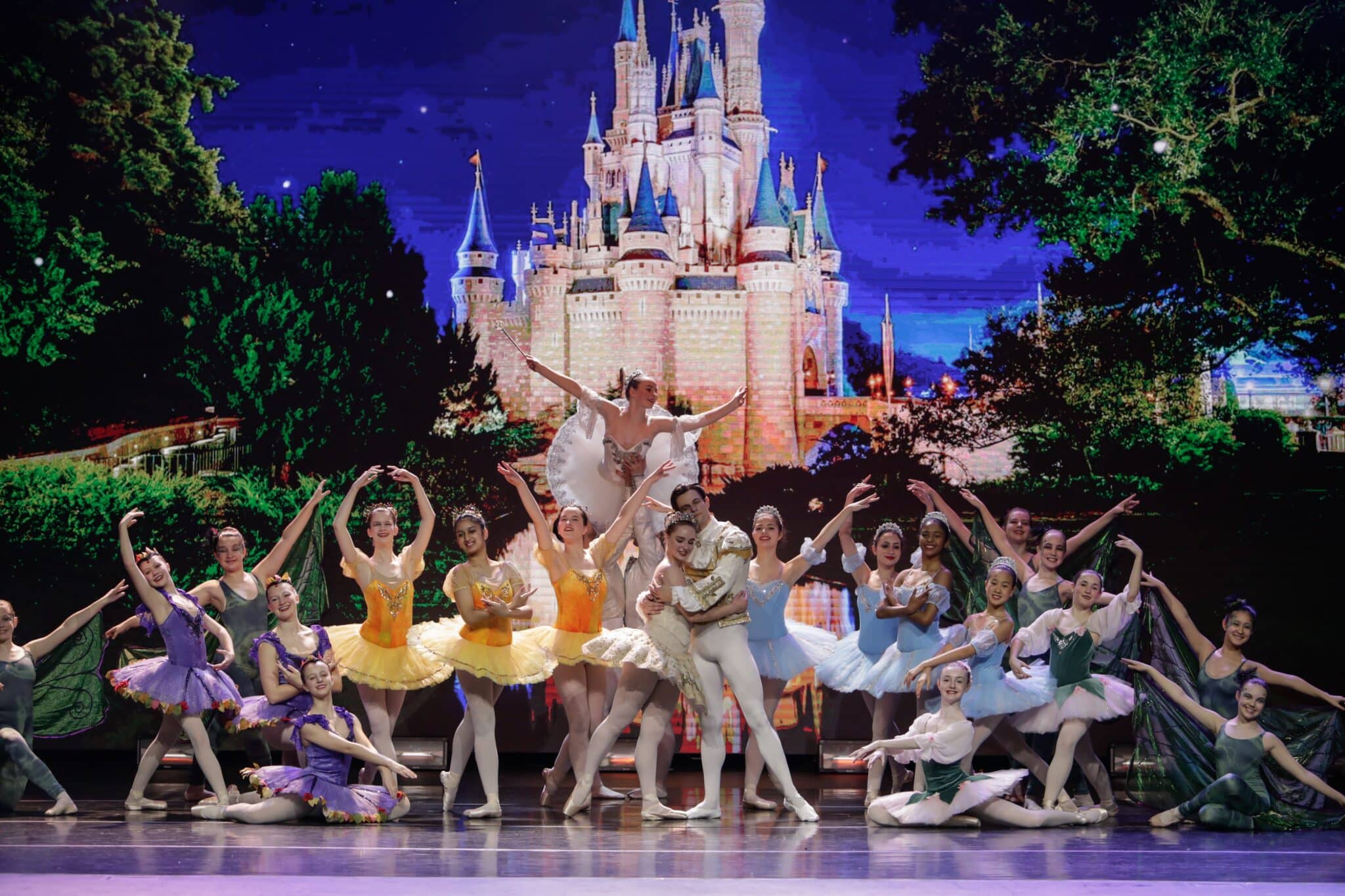
Perimeter Ballet celebrates its 30th anniversary this year. Founded in September 1995, the faith-based ballet school in Johns Creek has long been an integral part of the local arts scene and the community.
What began as a bare-bones program held in the sanctuary of Perimeter Church — on carpeted concrete floors, using the backs of chairs for barres — has grown into a respected school of more than 200 students. Ranging in age from five to 18, the young dancers at Perimeter Ballet are not only committed to the study of dance but also to using their gifts to share their faith.
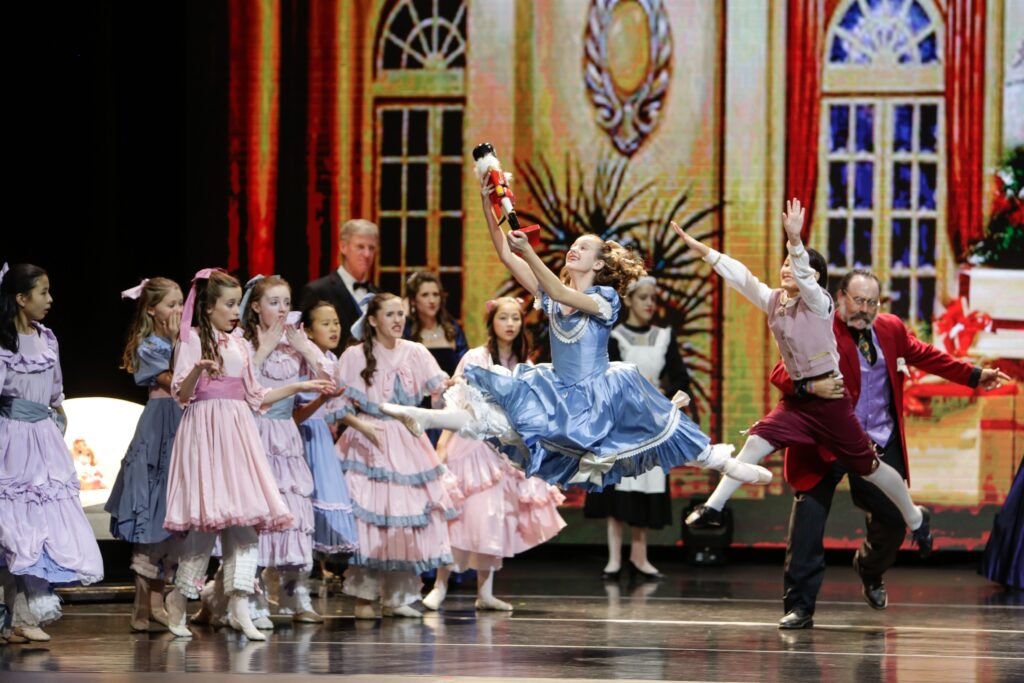
According to the program’s website, their purpose is to “emphasize character along with technique … to counter the natural tendency towards self-absorption in the ballet studio.”
They are “very committed to teaching children to dance — to develop discipline, technique and musicality. [But] the Christian instructors [also] train the students in a context that understands that there’s a reason to dance.”
30 years of dance and faith
Current director, Becky Brown, has led the school for several years, growing the program while faithfully following Perimeter Ballet’s original mission. She oversees weekly classes, summer dance camps and annual productions, including an acclaimed Spring Recital and a presentation of The Nutcracker each December.
For the 30th anniversary, Brown is excited to continue the creative work of the ballet school and share their artistry and message with a larger audience.
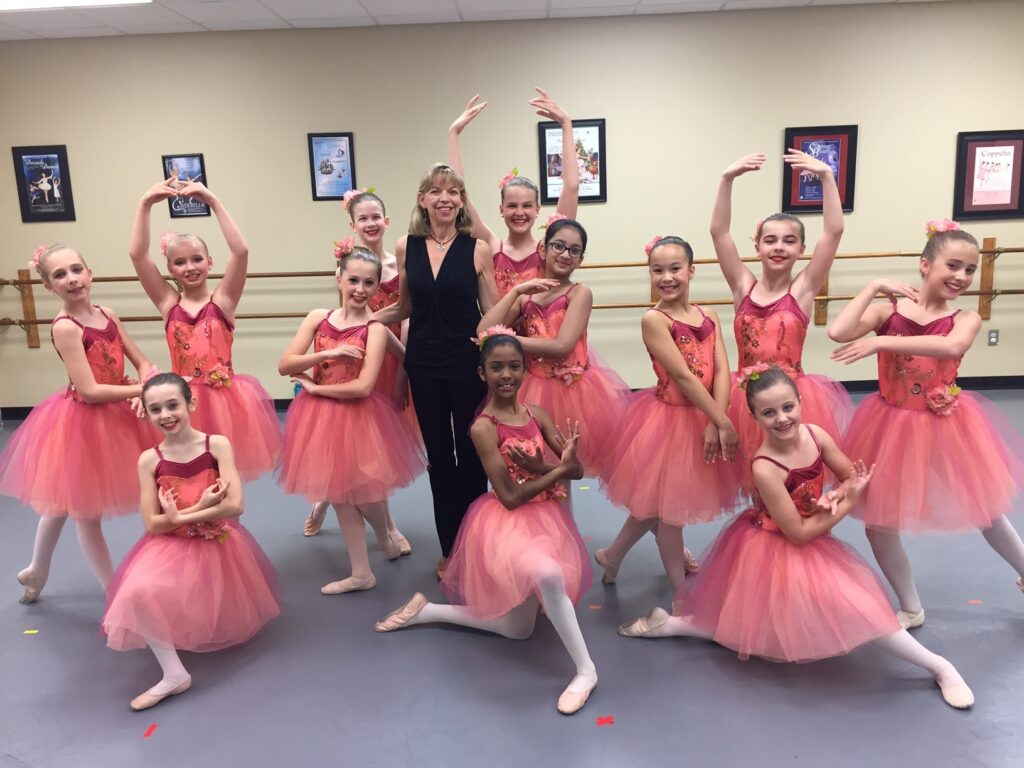
“This year will certainly be a special time for us as we celebrate and look back on 30 wonderful years of Perimeter Ballet and 20 years for our performing company, For His Glory,” she said. “We will be performing the Nutcracker December 11–13 and will have some beautiful new costumes to commemorate the occasion. We look forward to seeing many of our alumni and their families at the performance.”
Classes and instructors
Open to the community at large, weekly classes at Perimeter Ballet range from Creative Movement, PreBallet and grade-level classes for preschoolers through third grade to more advanced classes (two or more times per week) for older students.
Summer camp sessions as well as intermediate level and advanced level intensives are also offered. For the upper-level intensives, students work on their ballet technique but also branch out into jazz and other forms of dance.
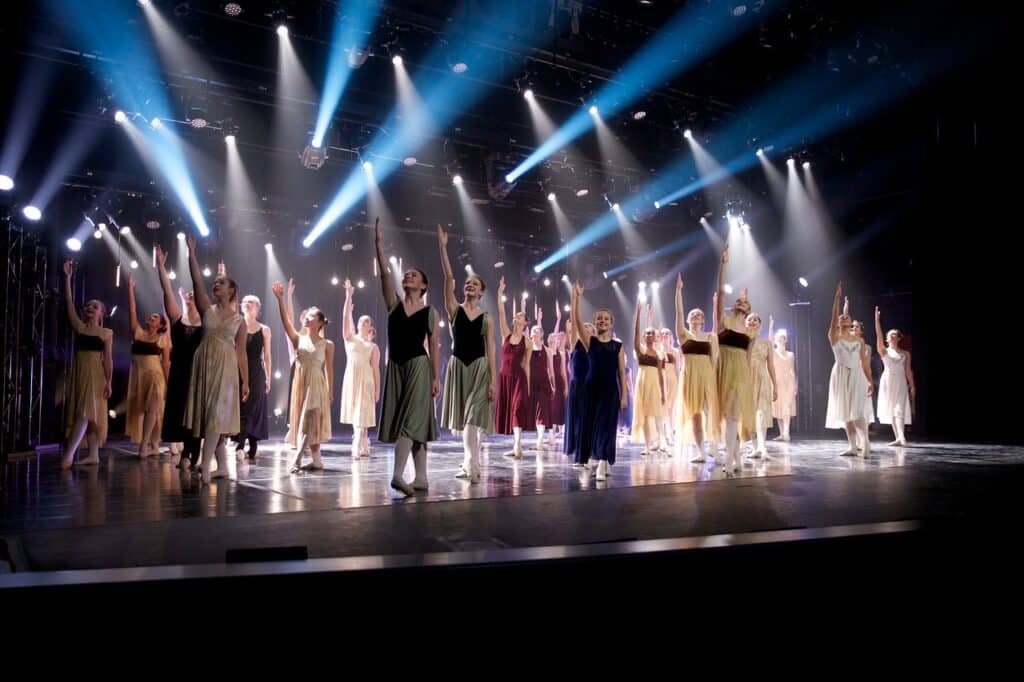
The school’s nine teachers are skilled not just as instructors but as performers themselves, having years of experience dancing with companies such as Ballet Southeast, Atlanta Ballet, North Atlanta Dance Academy and the Metropolitan Opera Ballet. They bring that experience and their Christian faith to all of their classes and interactions with the young students.
For His Glory
In addition to the work they do as a ballet school, Perimeter Ballet also has an audition-selected performance company — For His Glory.
With three levels, made up of dedicated students striving to advance their skills and reach their “God-given potential while giving glory to [their] Lord and Savior, Jesus Christ,” the program presents several high-quality productions throughout the year.
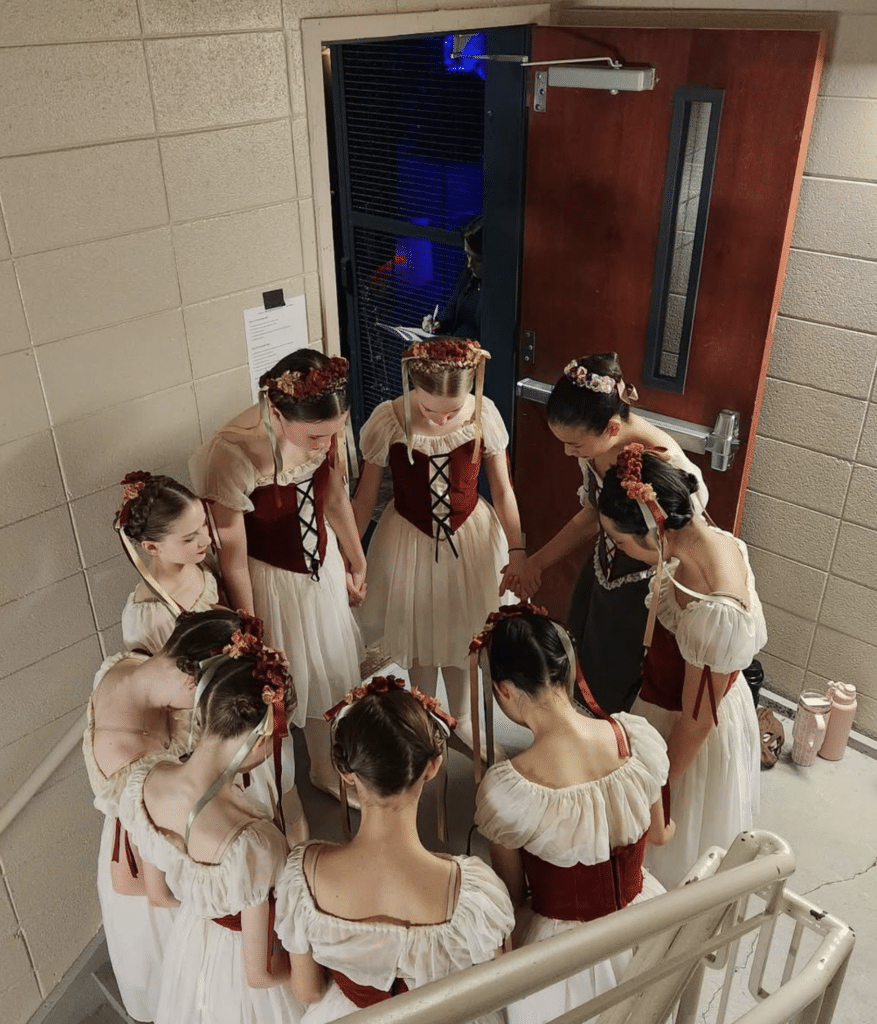
As Perimeter Ballet shares on their website: “Dancers are trained in the ballet classics as well as contemporary forms of dance, which are used in performances, worship settings and outreach. Classical ballets … in the group’s repertoire include Cinderella, Sleeping Beauty, Coppélia, excerpts from Four Seasons and La Fille Mal Gardee. In addition to Christmas and other outreach programs, For His Glory has danced internationally in London, India and Belarus.”
The group most recently performed Beauty & the Beast for two successful shows on stage at the Perimeter Church Sanctuary in early February of this year.
Impact and inspiration
All of this — the focus on faith and commitment to dance, the classes, intensives and stunning productions — have been a decades-long inspiration to the community and especially the student dancers who take part.
Many of the students stay with Perimeter Ballet for much of their childhood, learning and growing in dance as well as in their faith from elementary age through high school. That kind of involvement can clearly impact every aspect of their lives, from discipline learned to how they choose to interact with and be in the world.
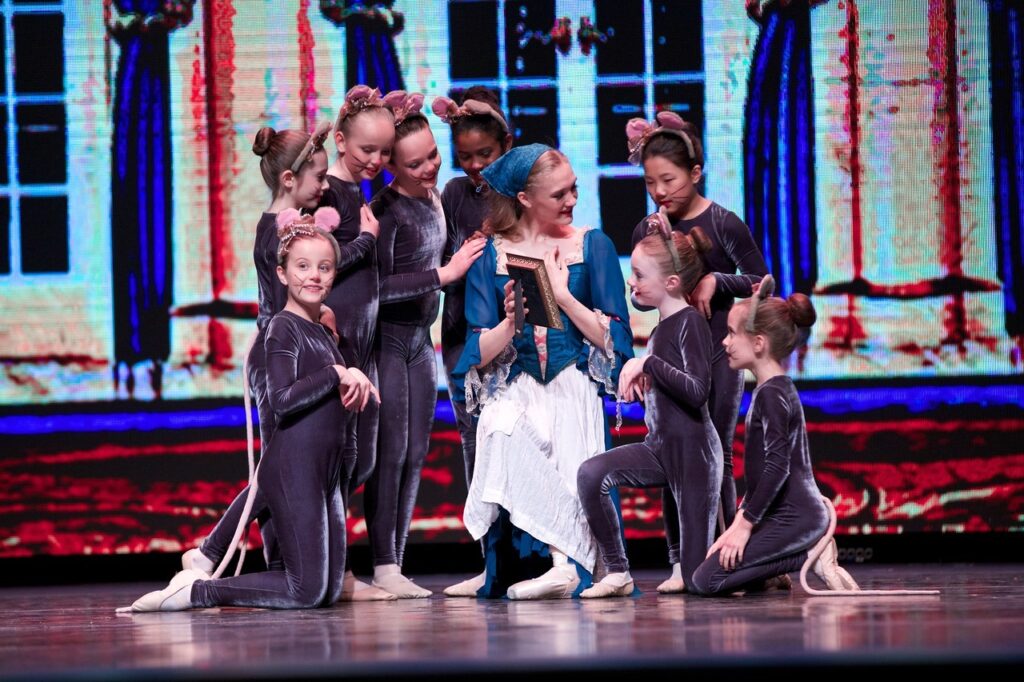
One student, Anne Bradley Maxwell has been taking ballet with the Perimeter program since she was three years old. Now a high school junior in Peachtree Corners, she’s reflected on her time at the school and in the performance company as well as Perimeter Ballet’s milestone anniversary.
“For fifteen years … I matured within this unique, local community arts program,” she shared. “This year marks the 30th anniversary of its founding … and I’m honored to say I’ve been a student for half of that era. The talented instructors in [the] program not only helped advance me into an accomplished ballerina but also into a more faithful servant of Jesus Christ using dance as a form of worship.”
A lifelong journey
“This lifelong journey included annual seasonal training, auditions, numerous external summer intensives and wonderful performances on stages across the nation and abroad, for audiences ranging from a few dozen to several thousand,” Maxwell continued.
“… Taking ballet has instilled in me a deep understanding of perseverance and resilience. Pursuing excellence in ballet required me to overcome physical and emotional challenges … I learned to seek out solutions — whether physical therapy for healing my body or prayer and reflection to rejuvenate my spirit. These experiences have strengthened my ability to face setbacks, adapt and emerge stronger.
Ballet has cultivated in me a unique combination of athleticism, discipline and creative imagination. The most elegant performances emerge from the interplay of technical mastery and creative expression. The collaborative nature of ballet, where individuals work in harmony to create something greater than themselves, informs my approach to teamwork and innovation, both in the classroom and community.”

“… Ballet has [also] given me the gift of joy — both in experiencing it personally as a testament to Christ’s goodness and in sharing it with audiences. This joy, while intangible, is a powerful force that I hope to bring into my next chapters following high school. Whether through teaching movement, choreographing performances or exploring ways to expand ballet offerings, I aspire to enrich the community with the beauty and joy of dance.
… My time at Perimeter Ballet has equipped me with perseverance, discipline, creativity and a passion for sharing joy — qualities that I am excited to further cultivate as a young adult. These will not only enhance my personal journey but also contribute meaningfully to the rich tapestry of life. As I enter my senior year later this fall, I am full of gratitude for the solid foundation of technique and creative expression honoring God as the giver of my talent.”
Upcoming events
Perimeter Ballet’s Annual Spring Recital will be held in the Perimeter Church Sanctuary on Thursday, May 1 and Friday, May 2 from 7 p.m. to 8:15 p.m.
Summer camp sessions are scheduled for June and July. Registration will open on April 15.
2025-2026 classes will start in August with registration opening on April 15.
With help from Anne Bradley, the school is also planning a fundraiser event later in the year to mark the 30th anniversary.
For more information, visit perimeterballet.com.
Related
Read the Digital Edition
Subscribe
Keep Up With Peachtree Corners News
Join our mailing list to receive the latest news and updates from our team.
You have Successfully Subscribed!

Official City Merchandise Line Debuts This Saturday at Town Green

Peachtree Corners Hosts Discussion About the Future of Local Policing

Executive Function: A Tribute to Working Moms

Peachtree Corners Grows Business Opportunities Through Economic Development

D1 Training Brings New Fitness Concept to Peachtree Corners

MomoCon 2025 to bring 60,000 Fans to Atlanta for a Weekend of Cosplay, Animation, Gaming and Music

Simpson Elementary Marks Exceptional Children’s Week

City of Peachtree Corners Awarded Certificate of Achievement From GFOA for Seventh Straight Year

From Boardrooms to the Himalayas: Vandana’s Journey to Purpose and Growing with Intention [Podcast]

MomoCon 2025 to bring 60,000 Fans to Atlanta for a Weekend of Cosplay, Animation, Gaming and Music

Local Special Olympics Pickleball Team Honored with State House Resolution

Atlanta’s Dog Howl-O-Ween Festival Moving to Peachtree Corners for 2025

D1 Training Brings New Fitness Concept to Peachtree Corners

Peachtree Corners Hosts Discussion About the Future of Local Policing

City of Peachtree Corners Awarded Certificate of Achievement From GFOA for Seventh Straight Year

Simpson Elementary Marks Exceptional Children’s Week

Light up the Corners [Video]

Capitalist Sage: Business Leadership in Your Community [Podcast]

Cliff Bramble: A Culinary Adventure through Italy

Top 10 Brunch Places in Gwinnett County

A Hunger for Hospitality

THE CORNERS EPISODE 3 – BLAXICAN PART 1

Top 10 Indoor Things To Do This Winter

The ED Hour: What it takes to Remove Barriers from Education

Peachtree Corners Life
Topics and Categories
Trending
-
Around Atlanta4 days ago
MomoCon 2025 to bring 60,000 Fans to Atlanta for a Weekend of Cosplay, Animation, Gaming and Music
-
Sports5 days ago
Local Special Olympics Pickleball Team Honored with State House Resolution
-
Business9 hours ago
From Boardrooms to the Himalayas: Vandana’s Journey to Purpose and Growing with Intention [Podcast]



